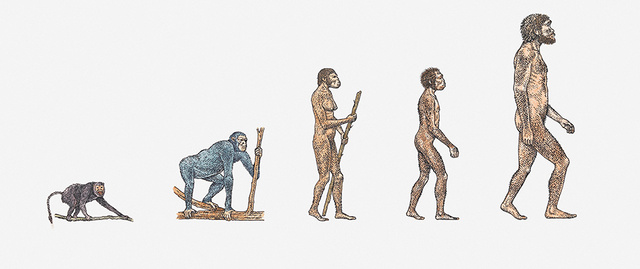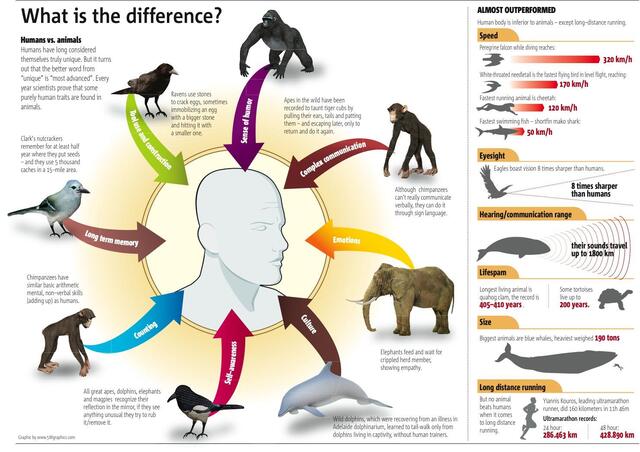Humans (Homo sapiens) are indeed animals and are part of the biological taxonomy. To understand this in detail, we can explore it from the perspectives of biological classification, evolutionary history, physiological structure, and behavioral characteristics.

Kingdom: Animalia
Humans are members of the animal kingdom and, like other animals, have a multicellular structure, heterotrophy (need to obtain energy by consuming organic matter), and the ability to move.
Phylum: Chordata
Humans belong to the phylum Chordata, which means that we have a notochord (a flexible support structure on the back) at some stage of embryonic development and develop into a vertebrate as we grow.
Class: Mammalia
Humans are mammals, which are characterized by maternal lactation, constant body temperature, hair coverage, and a large brain.
Order: Primates
Humans belong to the order Primates, which includes monkeys, apes, and humans. Their characteristics include flexible limbs, opposable thumbs (for grasping), large brain capacity, and complex social behavior.
Family: Hominidae
Humans belong to the family Hominidae (also known as the family of great apes or the family of great apes), which includes gorillas, chimpanzees, orangutans, etc. Hominidae animals are evolutionarily closer to humans and have higher intelligence and social behavior.
Genus: Homo
Humans are classified as Homo in biological classification, which is a unique genus of humans. The only existing species is Homo sapiens.
Species: Homo sapiens
Homo sapiens is the scientific name of modern humans, meaning "wise man", which is the latest species to appear in the process of human evolution.
Origin: Human ancestors can be traced back to ancient primates millions of years ago. Through long-term evolution, early Homo (such as Australopithecus, Homo habilis, and Homo erectus) gradually evolved into modern Homo sapiens.
Evolutionary characteristics: During the evolution of humans, we developed upright walking, complex language skills, significantly increased brain size, and the ability to make tools. These characteristics enable humans to survive in different environments and establish complex social and cultural systems.

Skeletal system: Humans have a typical vertebrate skeletal structure, and the ability to walk upright makes the human spine, pelvis, and lower limbs uniquely adapted to bipedal walking.
Brain: The human brain is highly developed, especially the complexity of the prefrontal cortex, which is closely related to decision-making, planning, language, and self-awareness.
Digestive System: Humans have an omnivorous diet that allows them to digest a wide variety of plant and animal foods. We do not have a complex rumination system or specialized teeth for carnivorous eating, but we are able to use tools and fire to process food.
Sociality: Humans are highly social animals that live in complex social structures that include families, tribes, nations, and global communities. Humans transmit knowledge, morals, laws, and technology through culture.
Language and Communication: Humans have a complex language system that is unique to us, allowing us to communicate through a variety of means, including writing, speaking, gestures, etc. This ability allows us to accumulate and transmit a large amount of information and knowledge.
Technology and Culture: Humans have developed a wide range of technologies and cultures during their evolution, including agriculture, architecture, art, science, and industry. These achievements have enabled humans to survive in all corners of the earth and change the natural environment.
From a biological point of view, humans are undoubtedly part of the animal kingdom. Although humans have highly developed intelligence and complex cultural systems, which give us a special position on the earth, in essence, we still follow the basic laws of the biological world. Understanding the animal nature of humans not only helps us understand our own origins and characteristics, but also promotes our harmonious coexistence with other creatures.
animal tags:
We created this article in conjunction with AI technology, then made sure it was fact-checked and edited by a Animals Top editor.